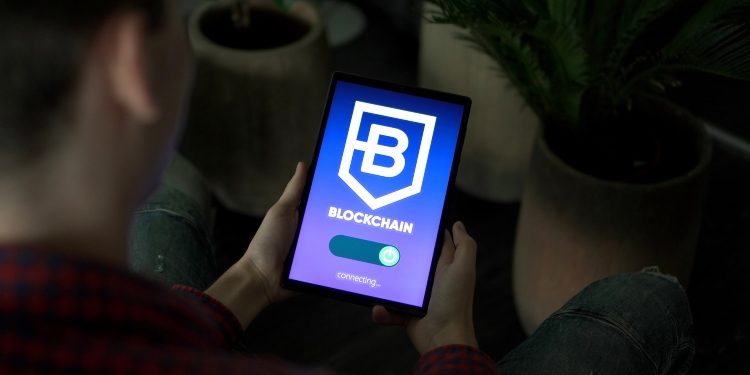Technology has been defining growth across industries for decades now, and the pace of development is quicker than ever. As tech start-ups continue to iterate increasingly-powerful AI algorithms and entities, the impact of innovation on business value is made all the starker.
For businesses to remain competitive, especially in dark economic times, it is vital that new technologies are embraced. One great example of this lies in blockchain, a potentially revelatory new digital standard that businesses should be across. But why?
What is Blockchain?
To the uninitiated, blockchain can be a difficult technology to understand. It describes a unique system of peer-to-peer data sharing, otherwise known as Distributed Ledger Technology (DLT). The blockchain is, in essence, a form of file-sharing with both high transparency and security.
Nodes in a network facilitate the sharing of information and corroborate information between one another; information cannot be altered without the unanimous ‘consent’ of all nodes in the network. Information is encrypted on an individual basis, and the entire system is decentralised – meaning there is no central database, server or product responsible for the ledger.
How Might Blockchain Help Businesses?
On the surface level, this technology might sound overly complex and even over-cautious – but its applications are much wider and deeper than it might seem at first glance. It is a technology that uses complex mathematics as a shibboleth and enjoys exceedingly high levels of security as a result. This plays into one key aspect of the value of blockchain-based technologies: trust.
Transactions, whether the sending of information or the transfer of valuable assets, require mediation – a costly and potentially weak link, particularly with ongoing transactions where said the mediating party could fail or cease. Blockchain is self-mediating, with information indelibly stored in the transaction itself to preserve its integrity.
The speed and unparalleled security of blockchain transactions make it the perfect candidate for a wide variety of business applications. A new start-up in the financial services sector might consult a technology lawyer on using blockchain as a central framework for secure transacting with international clients; the legal sector could also see a complete overhaul of its outdated data-sharing practices, with confidential documents and international couriers replaced by secure peer-to-peer filesharing and ‘smart contracts’.
A Proven Success
Blockchain is by no means an unproven technology. Any risks perceived by a business considering adoption relate more likely to regulation and compliance than intrinsic issues or limitations; indeed, blockchain has already somewhat proven itself in the public sphere, in two distinct ways.
Blockchain was pioneered through early efforts to innovate a digital currency and is the backbone for today’s cryptocurrencies – which form an extremely valuable market all of their own. They are also the bedrock for the creation of digital assets with rarity and value: Non-Fungible Tokens, or NFTs, which are traded in decentralised marketplaces and used as stores of value.
David Prior
David Prior is the editor of Today News, responsible for the overall editorial strategy. He is an NCTJ-qualified journalist with over 20 years’ experience, and is also editor of the award-winning hyperlocal news title Altrincham Today. His LinkedIn profile is here.


![7 Best POS Software in the UK [2026 Edition]](https://todaynews.co.uk/wp-content/uploads/2026/02/7-Best-POS-Software-in-the-UK-2026-Edition-360x180.png)





















































![7 Best POS Software in the UK [2026 Edition]](https://todaynews.co.uk/wp-content/uploads/2026/02/7-Best-POS-Software-in-the-UK-2026-Edition-120x86.png)

![7 Best POS Software in the UK [2026 Edition]](https://todaynews.co.uk/wp-content/uploads/2026/02/7-Best-POS-Software-in-the-UK-2026-Edition-350x250.png)


















